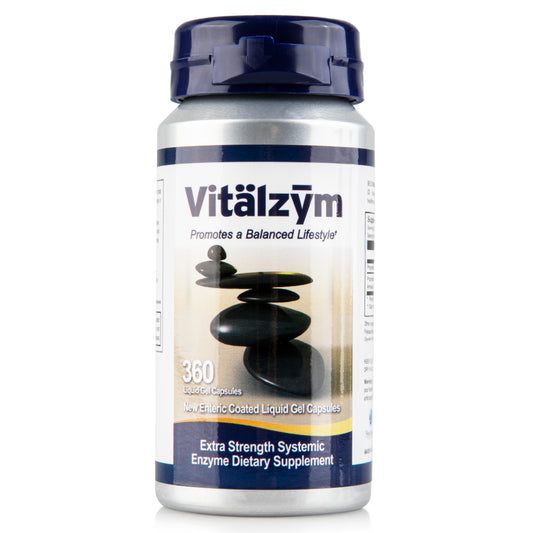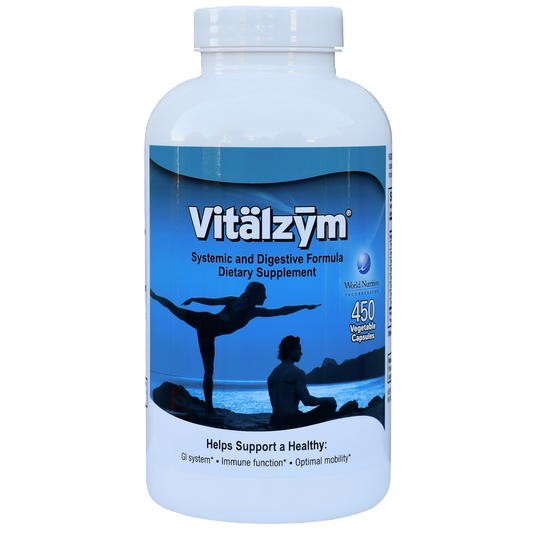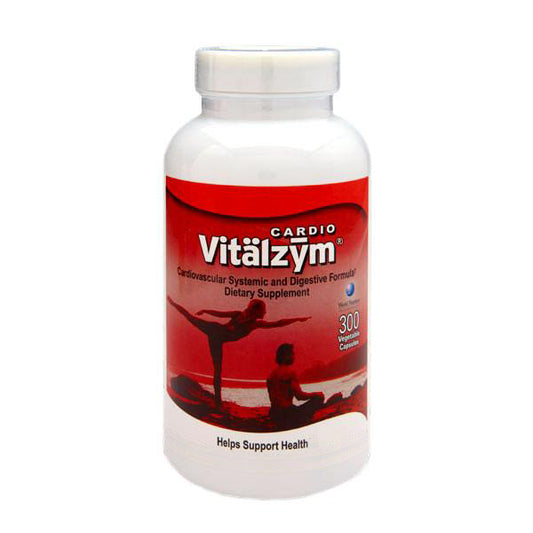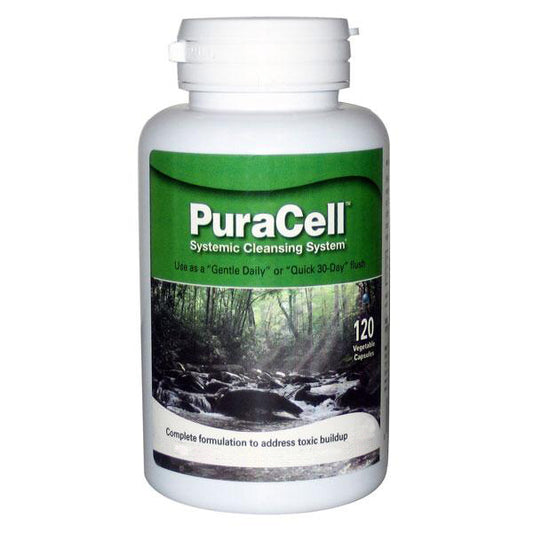Navigating the complexities of digestive health can be challenging, especially when certain foods wreak havoc on the system. For adults striving to optimize their diet and alleviate digestive issues, knowing what foods are hard to digest is essential. This comprehensive guide uncovers the most problematic foods, offering scientific insights and practical solutions to help readers achieve a more comfortable and efficient digestive process. Empower yourself with the knowledge to make dietary adjustments that support your overall health.
Why Do We Struggle To Digest Certain Foods?
The struggle to digest certain foods often stems from the body's inability to break down specific components effectively within the gastrointestinal system. For instance, lactose intolerance occurs when the body lacks the enzyme lactase, making it difficult to digest dairy products. High-fat foods can slow down the digestive process, leading to discomfort and bloating. Cruciferous vegetables and legumes contain complex carbohydrates and fibers that can produce gas and cause bloating. Processed foods often contain additives and preservatives that are hard for the body to process. Spicy foods, rich in capsaicin, can irritate the digestive tract, leading to discomfort. Understanding these factors, including the impact of gluten and gluten sensitivity, helps in making informed dietary choices to alleviate digestive issues.
What Foods Are Hard To Digest?
Dairy Products
Dairy products, including milk, cheese, and ice cream, can be challenging to digest for many individuals, particularly those with lactose intolerance. This condition arises from a deficiency in lactase, the enzyme needed to break down lactose, the sugar found in milk. As a result, consuming dairy can lead to symptoms such as bloating, gas, and diarrhea.
High-Fat Foods
Foods high in fat, such as fried foods, fatty cuts of meat, and rich desserts, can be difficult for the digestive system to process. Fat slows down the digestive process, which can cause feelings of fullness, bloating, and discomfort. Additionally, high-fat foods can exacerbate conditions like acid reflux and irritable bowel syndrome (IBS).
Cruciferous Vegetables
Cruciferous vegetables, including broccoli, cauliflower, and Brussels sprouts, are known for their high fiber content and complex carbohydrates. While nutritious, these vegetables can produce gas and lead to bloating and discomfort when not adequately broken down in the digestive tract. Cooking these vegetables can help reduce their impact on digestion.
Legumes
Legumes, such as beans, lentils, and chickpeas, are rich in protein and fiber but also contain complex carbohydrates that can be hard to digest. These carbohydrates, known as oligosaccharides, are not easily broken down by the digestive enzymes, leading to gas production and bloating. Soaking and thoroughly cooking legumes can help mitigate these effects.
Processed Foods
Processed foods, including packaged snacks, ready-to-eat meals, and fast food, often contain additives, preservatives, and artificial ingredients that can be tough on the digestive system. These components can disrupt the natural digestive process, leading to issues such as bloating, gas, and indigestion. Opting for whole, natural foods can improve digestion.
Spicy Foods
Spicy foods, particularly those containing capsaicin, such as hot peppers and spicy sauces, can irritate the digestive tract. Capsaicin can slow down the rate at which the stomach empties, causing discomfort, bloating, and even pain in some individuals. Reducing the intake of spicy foods or choosing milder seasonings can help alleviate these symptoms.

Common Side Effects Of Hard Digestions
- Bloating: A feeling of fullness and swelling in the abdomen, often caused by gas buildup from undigested food.
- Gas: Excessive production of gas in the digestive tract, leading to discomfort and flatulence.
- Indigestion: General discomfort in the upper abdomen, often accompanied by a burning sensation, nausea, or feeling overly full.
- Diarrhea: Frequent, loose, or watery bowel movements, which can result from the body's inability to properly digest certain foods.
- Constipation: Difficulty in passing stools, often due to the digestive system struggling to process high-fiber or complex carbohydrate foods.
- Abdominal Pain: Cramping or sharp pain in the stomach area, which can occur when the digestive system is irritated or inflamed.
- Heartburn: A burning sensation in the chest or throat, typically caused by acid reflux, which can be triggered by hard-to-digest foods.
- Nausea: A feeling of queasiness or an urge to vomit, often resulting from digestive distress.
- Fatigue: Feeling unusually tired or lethargic, which can occur when the body expends extra energy trying to digest difficult foods.
Do Artificial Sweeteners Cause Digestive Problems?
Artificial sweeteners, such as aspartame, sucralose, and sorbitol, can indeed cause digestive problems for some individuals. These sugar substitutes are often used in diet sodas, sugar-free gum, and low-calorie snacks. While they provide a sweet taste without the calories, they can be difficult for the digestive system to break down. Sorbitol and other sugar alcohols, in particular, are known to cause bloating, gas, and diarrhea because they are not fully absorbed in the small intestine. Additionally, artificial sweeteners can alter the gut microbiota, potentially leading to further digestive discomfort and issues. For those experiencing such symptoms, reducing or eliminating artificial sweeteners from the diet may help improve digestive health.
Is Caffeine Bad For Digestion?
Caffeine, found in coffee, tea, and certain sodas, can negatively impact digestion for some individuals. It stimulates the central nervous system, which can increase stomach acid production, potentially leading to acid reflux or heartburn. Additionally, caffeine acts as a diuretic, which can lead to dehydration and, consequently, constipation. For those with sensitive digestive systems or conditions like irritable bowel syndrome (IBS), caffeine can exacerbate symptoms such as abdominal pain, cramping, and diarrhea. While moderate caffeine consumption is generally safe for most people, those experiencing digestive issues may benefit from reducing their intake or opting for caffeine-free alternatives.
Can Raw Vegetables and Fruits Impact Digestion?
Raw vegetables and fruits, while rich in essential nutrients and fiber, can sometimes impact digestion negatively, particularly for individuals with sensitive digestive systems. The high fiber content in raw produce can be challenging to break down, leading to symptoms such as bloating, gas, and abdominal discomfort. Additionally, certain raw vegetables, like broccoli, cabbage, and onions, contain complex carbohydrates that can produce gas during digestion. Fruits with high fructose content, such as apples and pears, can also cause digestive distress for some people. Cooking vegetables and choosing fruits with lower fructose levels can help alleviate these issues, making it easier for the digestive system to process these healthy foods.
Conclusion
Understanding what foods are hard to digest is a crucial step toward achieving better digestive health and overall well-being. By identifying and moderating the intake of problematic foods such as dairy products, high-fat foods, cruciferous vegetables, legumes, processed foods, and spicy dishes, individuals can alleviate common digestive issues like bloating, gas, and indigestion. Additionally, being mindful of artificial sweeteners, caffeine, and raw produce can further enhance digestive comfort. Armed with this knowledge, readers can make informed dietary choices, adopt healthier eating habits, and ultimately enjoy a more harmonious and efficient digestive system.
Final Thoughts
Transform your vitality with Vitalzym Extra Strength, an advanced enzyme supplement from World Nutrition. This vegetarian-friendly formula harnesses the power of papain from papaya to elevate enzyme levels, enhance immune function, accelerate recovery, and promote healthy blood circulation. By combining serrapeptase, bromelain, and other essential ingredients, Vitalzym paves the way to a healthier, more vibrant life. Experience the transformative benefits of World Nutrition's papaya-infused products and unlock superior well-being.*
Sources
- https://www.yorktest.com/us/blog/can-vegetables-cause-digestive-issues
- https://www.healio.com/news/gastroenterology/20230511/artificial-sweeteners-linked-to-marked-effects-on-small-intestinal-microbiome
- https://puroast.com/a/guide/category/health-benefits-c-ptKH/can-coffee-cause-a-stomach-ache-q-RsnRxr
These statements have not been evaluated by the food and drug administration (FDA). These products are not intended to diagnose, treat, cure, or prevent any disease.







